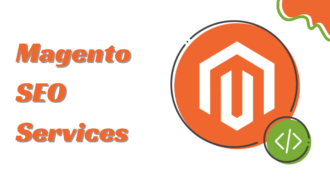Becoming an SEO king: Tips to create a killer SEO strategy
- 1 The Benefits of an SEO Performance Plan
- 1.1 Increased Website Visibility
- 1.2 Organic Traffic Growth
- 1.3 Better User Experience
- 1.4 Enhanced Credibility and Trust
- 1.5 Long-Term Sustainability
- 1.6 Cost-Effectiveness
- 1.7 Competitive Advantage
- 1.8 Adaptability to Algorithm Changes
- 1.9 Insightful Analytics and Reporting
- 1.10 Targeted Audience Reach
- 2 The Five Main Components of an SEO Performance Strategy
- 2.1 1. On-Page Optimization
- 2.2 2. Off-Page Optimization
- 2.3 3. Technical SEO
- 2.4 4. Local SEO
- 2.5 5. Analytics and Reporting
- 3 How to Measure the Success of Your SEO Performance Strategy
- 3.1 1. Organic Traffic Growth
- 3.2 2. Keyword Rankings
- 3.3 3. Conversion Rate
- 3.4 4. Backlink Profile
- 3.5 5. User Engagement Metrics
- 3.6 6. Mobile Performance
- 3.7 7. Local SEO Metrics
- 3.8 8. Overall ROI
- 4 Tips for Optimizing Your SEO Performance Strategy
- 4.1 1. Comprehensive Keyword Research
- 4.2 2. High-Quality Content Creation
- 4.3 3. On-Page Optimization
- 4.4 4. Mobile-Friendly Design
- 4.5 5. Technical SEO Optimization
- 4.6 6. Quality Backlink Building
- 4.7 7. Local SEO Optimization
- 4.8 8. Regular Performance Monitoring and Analysis
- 4.9 9. Stay Informed About Algorithm Updates
- 4.10 10. Continuous Learning and Optimization
- 5 Recap
Search Engine Optimization is a technique used on a website to enhance site visibility amongst search engines. By optimizing a website for search engines, web admins can double their chances of ranking higher. Nothing too complicated, right? And yet, many challenges are waiting when you start thinking about an SEO game plan, and all sizes of companies need to be prepared.
The Benefits of an SEO Performance Plan
There are many benefits to implementing an SEO performance strategy. An expert SEO agency can help you implement your SEO strategy:
Increased Website Visibility
An effective SEO performance plan enhances your website’s visibility on search engine results pages (SERPs). You can significantly improve your site’s ranking for relevant keywords by strategically optimizing its content and structure. This increased visibility makes it easier for potential customers to find your website when they search for products or services related to your business.
Organic Traffic Growth
One of the primary benefits of implementing an SEO performance plan is the significant growth in organic traffic to your website. Targeting specific keywords and optimizing your content can attract users actively searching for information or solutions related to your industry. This organic traffic is precious as it consists of genuine users interested in your offerings, leading to higher conversion rates.
Better User Experience
A well-designed SEO performance plan focuses on optimizing search engines and prioritizes enhancing the overall user experience. This includes improving website speed, ensuring mobile responsiveness, and creating high-quality, relevant content. By providing users with a seamless browsing experience, you can increase engagement, reduce bounce rates, and encourage repeat visits, all of which are factors that search engines consider when ranking websites.
Enhanced Credibility and Trust
Ranking higher in search engine results increases visibility and enhances your website’s credibility and trustworthiness. Users tend to trust websites that appear at the top of search results, assuming they are authoritative and relevant to their search queries. By consistently delivering valuable content and earning quality backlinks from reputable sources, you can establish your website as a trustworthy resource within your industry.
Long-Term Sustainability
Unlike some marketing strategies that deliver short-term results, the benefits of SEO are more sustainable over the long term. While it requires initial investment in time and resources, once you achieve high rankings for target keywords, maintaining them requires ongoing optimization but can lead to consistent, cost-effective traffic. This long-term sustainability makes SEO valuable for businesses looking to build a solid online presence.
Cost-Effectiveness
Compared to paid advertising, SEO is a more cost-effective strategy for driving traffic to your website. While it requires upfront investment in terms of time and resources, the traffic generated through organic search does not incur per-click costs like paid advertising campaigns. Additionally, SEO efforts tend to have a higher return on investment (ROI) over time, making it a valuable investment for businesses of all sizes.
Competitive Advantage
A robust SEO performance plan can provide a significant competitive advantage in today’s competitive digital landscape. Outranking competitors for crucial search terms not only increases visibility but also helps you capture a larger share of the market. By consistently optimizing your website and staying ahead of algorithm changes, you can maintain your competitive edge and continue to attract customers online.
Adaptability to Algorithm Changes
Search engine algorithms are constantly evolving, impacting your website’s search rankings. However, a well-executed SEO performance plan is adaptable to these changes. By staying informed about algorithm updates and adjusting your strategy accordingly, you can ensure that your website remains optimized for search and continues to perform well in organic search results.
Insightful Analytics and Reporting
Another advantage of implementing an SEO performance plan is the ability to track and analyze key metrics to measure success. Tools like Google Analytics and Search Console provide valuable insights into your website’s performance, user behavior, and areas for improvement. Regularly analyzing this data enables you to make informed decisions about your SEO strategy and identify opportunities for further optimization.
Targeted Audience Reach
SEO allows you to target specific demographics, locations, and user intents with tailored content and optimization strategies. By understanding your target audience and their search behavior, you can create content that addresses their needs and interests, increasing the likelihood of engagement and conversion. This targeted approach ensures that your website reaches the right audience, ultimately driving more qualified traffic and leads.
The Five Main Components of an SEO Performance Strategy
An effective SEO performance strategy should include the following five components:
1. On-Page Optimization
On-page optimization involves optimizing individual web pages to rank higher and earn more relevant traffic in search engines. This component includes:
- Keyword Research: Identifying relevant keywords with high search volume and optimizing content around them.
- Content Optimization: Creating high-quality, relevant, and engaging content that satisfies user intent and incorporates target keywords naturally.
- Meta Tags and Descriptions: Writing compelling meta titles and descriptions that accurately reflect the content and encourage clicks from search engine users.
- URL Structure: Creating user-friendly URLs that are descriptive and contain relevant keywords.
- Internal Linking: Linking related pages within your website to improve navigation and distribute link equity.
2. Off-Page Optimization
Off-page optimization focuses on improving the website’s authority and relevance through external factors. This component includes:
- Link Building: Earning backlinks from authoritative and relevant websites to improve the website’s authority and trustworthiness.
- Social Media Marketing: Leveraging social media platforms to increase brand awareness, drive traffic, and generate social signals that can indirectly impact search rankings.
- Online Reputation Management: Monitoring and managing online reviews, mentions, and brand sentiment to maintain a positive online reputation, which can indirectly influence search rankings.
3. Technical SEO
Technical SEO involves optimizing the technical aspects of a website to improve its crawling, indexing, and overall search engine performance. This component includes:
- Website Speed Optimization: Ensuring fast loading times to improve user experience and search engine rankings.
- Mobile Responsiveness: Designing and optimizing the website to provide a seamless user experience across all devices, including smartphones and tablets.
- Structured Data Markup: Implementing structured data markup to help search engines understand the content and display rich snippets in search results.
- XML Sitemap: Creating and submitting XML sitemaps to help search engines crawl and index website pages more efficiently.
4. Local SEO
Local SEO focuses on optimizing a website to rank for local search queries and attract customers in a specific geographic area. This component includes:
- Google My Business Optimization: Claiming and optimizing a Google My Business listing to improve visibility in local search results and Google Maps.
- Local Citations: Building consistent and accurate citations (mentions of the business name, address, and phone number) across online directories and local listings.
- Localized Content: Creating content tailored to local audiences and including location-specific keywords to target local search queries effectively.
5. Analytics and Reporting
Analytics and reporting are essential for measuring the effectiveness of an SEO performance strategy and identifying areas for improvement. This component includes:
- Website Analytics: Tracking organic traffic, keyword rankings, conversion rates, and user engagement using tools like Google Analytics.
- Rank Tracking: Monitoring keyword rankings and visibility in search engine results pages (SERPs) to assess the impact of SEO efforts.
- Performance Reporting: Generating regular reports to analyze trends, measure progress against goals, and make data-driven decisions to optimize the SEO strategy further.
How to Measure the Success of Your SEO Performance Strategy
Some of the most important metrics to track include:
1. Organic Traffic Growth
Monitoring the growth of organic traffic to your website is a fundamental metric for measuring the success of your SEO performance strategy. This involves:
- Google Analytics: Tracking the overall organic traffic volume over time and analyzing traffic trends for specific landing pages and keywords.
- Traffic Sources: Identifying the sources of organic traffic (e.g., search engines, referring websites) and assessing their contribution to overall traffic.
2. Keyword Rankings
Tracking keyword rankings is essential for evaluating the effectiveness of your SEO efforts in improving search visibility. This includes:
- Rank Tracking Tools: Using tools like SEMrush, Ahrefs, or Google Search Console to monitor keyword rankings and identify changes in search engine rankings over time.
- Keyword Performance: Analyzing keyword performance metrics such as average position, click-through rate (CTR), and impressions to assess the impact of optimization efforts.
3. Conversion Rate
Measuring the conversion rate from organic traffic is crucial for determining the quality and relevance of visitors coming to your site through search engines. This involves:
- Goal Tracking: Setting up conversion goals in Google Analytics to track specific actions organic visitors take, such as form submissions, purchases, or newsletter sign-ups.
- Conversion Rate Optimization (CRO): Analyzing conversion rate data to identify opportunities for optimizing landing pages and improving the user experience to drive higher conversion rates.
4. Backlink Profile
Assessing the quality and quantity of backlinks pointing to your website is essential for evaluating its authority and trustworthiness in the eyes of search engines. This includes:
- Backlink Analysis Tools: Use tools like Moz, Majestic, or Ahrefs to analyze your website’s backlink profile, including the number of backlinks, referring domains, and anchor text distribution.
- Link Quality: To ensure a healthy backlink profile, evaluate the quality of backlinks based on domain authority, relevancy, and authority of linking domains.
5. User Engagement Metrics
Monitoring user engagement metrics helps assess the relevance and usability of your website’s content for organic visitors. This involves:
- Bounce Rate: Analyzing the bounce rate to understand how many users leave your site after viewing only one page, indicating the relevance and quality of the content.
- Average Session Duration: Tracking the average time users spend on your site to gauge engagement levels and the effectiveness of your content in keeping visitors engaged.
6. Mobile Performance
Considering Google’s mobile-first indexing approach, assessing your website’s performance on mobile devices is essential. This includes:
- Mobile Usability: Checking Google Search Console’s Mobile Usability report to identify and fix issues affecting the mobile user experience, such as mobile-friendly design, page loading speed, and mobile responsiveness.
7. Local SEO Metrics
If your business targets local customers, tracking local SEO metrics is crucial for evaluating your performance in local search results. This includes:
- Local Pack Rankings: Monitoring your website’s visibility in the local pack (the map-based results displayed for local queries) to assess its performance in local search results.
8. Overall ROI
Calculating the overall return on investment (ROI) from your SEO efforts helps determine the effectiveness of your SEO performance strategy in achieving business goals. This involves:
- Revenue Attribution: Tracking the revenue generated from organic traffic and attributing it to specific SEO initiatives to measure the direct impact on business revenue.
Tips for Optimizing Your SEO Performance Strategy
Use these tips when working on a strategy:
1. Comprehensive Keyword Research
Keyword research forms the foundation of any effective SEO performance strategy. Identify relevant keywords and phrases related to your business, products, or services. Use keyword research tools like Google Keyword Planner, SEMrush, or Ahrefs to discover search volume, competition levels, and related keywords. Focus on long-tail keywords that are more specific and have lower competition, as they can often result in higher conversion rates.
2. High-Quality Content Creation
Creating high-quality, relevant content is essential for optimizing your SEO performance strategy. Develop content that addresses the needs and interests of your target audience while incorporating your target keywords naturally. Aim for content that is informative, engaging, and valuable to users. Regularly update your website with fresh content to keep it relevant and attract search engine crawlers.
3. On-Page Optimization
Optimizing on-page elements is crucial for improving your website’s search visibility. Focus on optimizing meta titles, descriptions, headers, and URL structures to include target keywords and accurately reflect the content of each page. Use descriptive alt tags for images to improve accessibility and provide additional context for search engines. Ensure your website’s navigation is user-friendly and logical, making it easy for visitors and search engines to navigate your site.
4. Mobile-Friendly Design
With the increasing prevalence of mobile devices, optimizing your website for mobile is essential for SEO performance. Ensure your website is responsive and mobile-friendly, providing users a seamless experience across all devices. Test your website’s mobile performance using tools like Google’s Mobile-Friendly Test and make necessary adjustments to improve loading speed, readability, and usability on mobile devices.
5. Technical SEO Optimization
Technical SEO optimization focuses on improving your website’s technical aspects to enhance its search engine performance. This includes optimizing website speed, fixing broken links, improving site architecture, and implementing schema markup for rich snippets. Ensure your website is easily crawlable by search engine bots by creating and submitting XML sitemaps, optimizing robots.txt files, and addressing any crawl errors reported in the Google Search Console.
6. Quality Backlink Building
Building high-quality backlinks from authoritative and relevant websites is crucial for improving your website’s authority and trustworthiness in the eyes of search engines. Focus on earning backlinks from reputable sources within your industry through guest blogging, influencer partnerships, and content collaborations. Avoid black hat SEO tactics like buying links or participating in link schemes, as they can result in penalties from search engines.
7. Local SEO Optimization
If your business serves a local audience, optimizing for local search is essential for improving your SEO performance. Claim and optimize your Google My Business listing, ensuring accurate business information, including name, address, phone number, and business hours. Encourage satisfied customers to leave positive reviews on Google My Business and other relevant review platforms to improve local search visibility.
8. Regular Performance Monitoring and Analysis
Regularly monitor and analyze key performance metrics to evaluate the effectiveness of your SEO performance strategy. Utilize tools like Google Analytics, Google Search Console, and third-party SEO software to track organic traffic, keyword rankings, backlink profiles, and user engagement metrics. Identify areas for improvement and adjust your SEO strategy based on data-driven insights and performance trends.
9. Stay Informed About Algorithm Updates
Stay informed about changes to search engine algorithms and updates to SEO best practices to ensure your SEO performance strategy remains effective. Subscribe to reputable SEO blogs, follow industry experts on social media, and participate in relevant forums and communities to stay updated on the latest trends and developments in the world of SEO. Adapt your strategy to accommodate algorithm changes and emerging trends to maintain and improve your search rankings.
10. Continuous Learning and Optimization
SEO is an ongoing process that requires continuous learning and optimization to stay ahead of the competition and maintain your search rankings. Stay curious and open to learning new SEO techniques, experiment with different strategies, and continuously test and optimize your website for better performance. Regularly audit your website’s SEO health, address any issues, and implement improvements to ensure your SEO performance strategy remains effective and competitive in the ever-evolving digital landscape.
Recap
Optimizing your SEO performance strategy is paramount for maximizing your website’s visibility, attracting relevant organic traffic, and achieving tangible results in search engine rankings. By meticulously conducting keyword research, crafting compelling content, fine-tuning on-page elements, ensuring mobile responsiveness, and mastering technical SEO, you lay a solid foundation for success.
Moreover, fostering quality backlink relationships, embracing local SEO tactics, consistently monitoring performance metrics, and staying abreast of algorithmic changes are pivotal for sustaining and enhancing your search presence. Through continuous learning, adaptation, and relentless optimization, you not only navigate the dynamic SEO landscape but also position your website for long-term success in the digital ecosystem.
In essence, by implementing a holistic SEO performance strategy and remaining dedicated to refining your approach over time, you can unlock the full potential of your website, drive meaningful organic traffic, and achieve your overarching business objectives with confidence.





















